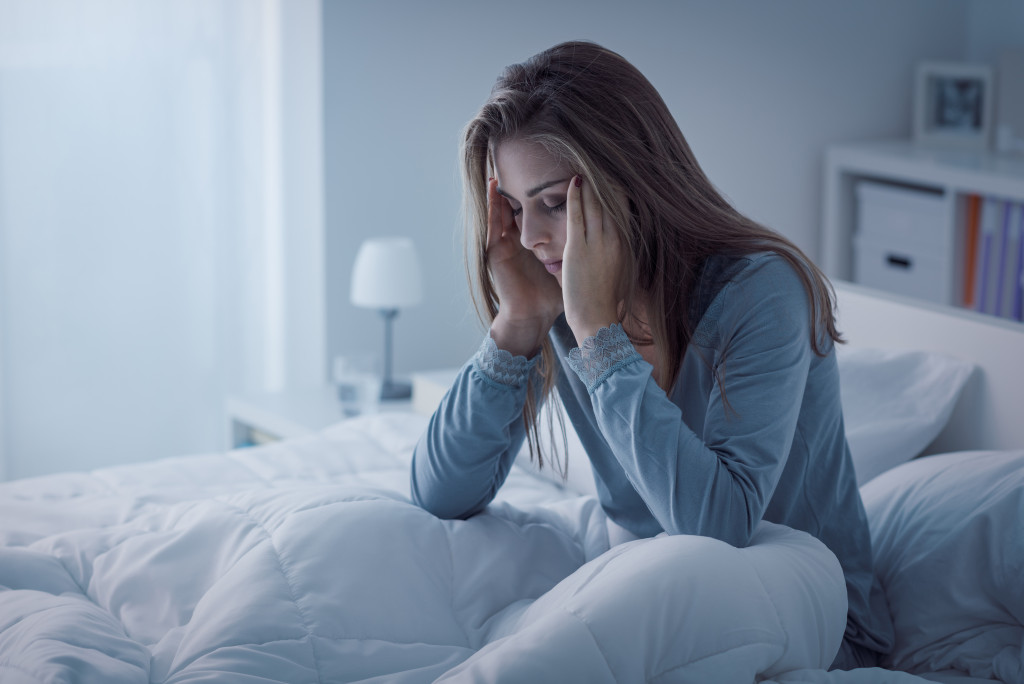- Sleep disorders such as insomnia, sleep apnea, and restless leg syndrome can disrupt the sleep cycle and make one groggy
- Stress, poor sleep habits, underlying medical conditions, and environmental factors can contribute to sleeping disorders.
- Investing in a comfortable mattress, creating a regular sleep schedule, limiting caffeine intake, exercising regularly, and consulting a doctor are all ways to deal with sleeping disorders.
- Mental health issues like depression and anxiety can also cause sleep disturbances due to medications prescribed for them.
- Sleep is essential for physical, mental, and emotional well-being – so don’t neglect it!
Sleep is vital for your overall well-being. It is your body’s way of refreshing, repairing, and rejuvenating after a long day’s work. However, not everyone can get enough restful sleep every night. Sleep disorders, such as insomnia, sleep apnea, and restless leg syndrome, can interrupt the sleep cycle, leaving one feeling groggy and tired all day. These disorders have different causes. Here’s what you need to know about sleep disorders, their leading reasons, and how to deal with them.
What Are Sleeping Disorders?
Sleeping disorders are medical conditions that affect the quality and quantity of your sleep. Various physical, mental, and environmental factors can cause it. The four most common types of sleeping disorders are insomnia, sleep apnea, narcolepsy, and restless leg syndrome (RLS). These disorders are problematic. Here are some of the leading reasons for it:
Stress
One of the most common reasons for sleep disorders is stress. With today’s fast-paced and demanding lifestyle, it’s easy to feel overwhelmed, anxious, and exhausted. Unfortunately, stress can interfere with your sleep, decreasing the quality of rest we get every night. When stressed, your body produces cortisol, which keeps us alert and awake. This hormone can keep you up at night, leading to insomnia or frequent awakenings.
Poor Sleep Habits
Having poor sleep habits disrupts your body’s natural circadian rhythm. Some of these habits include irregular sleeping patterns, sleeping late on weekends, having large meals before bed, consuming caffeine and alcohol before sleeping, and overstimulating the brain with electronic devices like phones and laptops. Your lifestyle choices can have a detrimental impact on your sleep, leading to various sleep disorders.
Medical Conditions
Several underlying medical conditions can cause sleep disorders. Those with sleep apnea have a medical condition that interrupts their breathing during sleep. Other medical conditions such as restless leg syndrome, narcolepsy, and acid reflux can disrupt one’s sleep as well.
Environmental Factors
Your sleeping environment plays a critical role in the quality of your sleep. Loud noises, bright lights, uncomfortable mattresses or pillows, sleep disruptions from partners, and extreme temperatures — all these factors can cause restless nights. It is essential to create a comfortable atmosphere conducive to sleep, making slipping into a state of rest easier.
Mental Health and Medications
Mental health issues such as depression, anxiety, and post-traumatic stress disorder can also impact one’s sleep pattern. Many medications for these conditions can disrupt sleep, leading to daytime lethargy and fatigue. Therefore, an open conversation about recent medication changes with your doctor is essential.
Dealing and Preventing With Sleeping Disorders
Thankfully, there are ways you can deal with and prevent sleeping disorders. Here are five ways:
Change Your Mattress
The first step is to invest in a comfortable mattress and pillows. A good bed can help reduce tossing and turning at night, making it easier to drift off into a peaceful slumber. Visit local mattress stores and choose the right mattress for you. As a rule, choose memory foam mattresses or ones designed for comfort and support.
Create a Sleep Schedule

Creating a regular sleep schedule is critical to reducing sleep disturbances. Go to bed and wake up at the same time daily, even on weekends. This will help your body clock stay in sync and easily adapt to your sleep-wake cycle.
Limit Caffeine Intake
It’s easy to depend on caffeine as an energy booster throughout the day, but it can adversely impact one’s quality of rest. Try limiting it after 2 pm and avoid drinking coffee or caffeinated beverages too close to bedtime as they can disrupt sleep patterns.
Exercise Regularly

Regular exercise has been found to improve the quality of one’s sleep. Try to exercise at least 30 minutes daily, preferably in the evening. This will help reduce stress and tire your body for a deeper sleep.
Visit a Doctor
If you find yourself struggling with sleeping disorders even after making lifestyle changes, be sure to consult a doctor. A professional can diagnose underlying conditions and recommend treatments such as therapy or medications that can help improve your quality of rest.
Sleep is essential for your overall health and well-being, but sometimes it can be challenging to get enough restful sleep every night due to various sleep disorders. Fortunately, there are ways that we can deal with and prevent sleeping disorders by making simple lifestyle changes. If these don’t work, it may be time to speak with a doctor or specialist about underlying causes and treatments. Sleep is essential for your physical, mental, and emotional well-being – so don’t neglect it!

